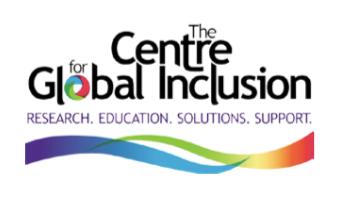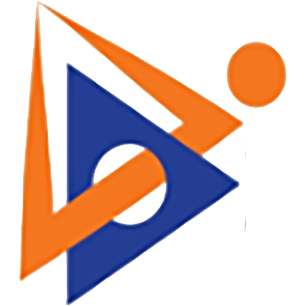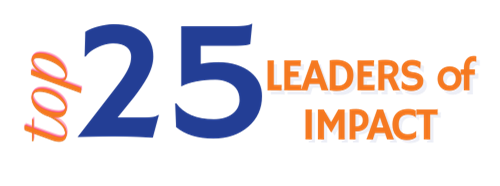The Centre for Global Inclusion is the leading global inclusion nonprofit that has knowledge and resources across the world, working in the field of education and research in its quest to address diversity, equity and inclusive (DEI) practices. We thought our readers might want to be a little more familiar with their work so we asked them a few questions.
- Please tell us a little about the history of the mission and the strategic plan for the Centre for Global Inclusion.
The Centre’s mission is: to serve as a resource for research and education for individuals and organizations in their quest to improve diversity and inclusion practices around the world.
Although our research and education are focused globally, we are organized as a US non-profit entity. Specifically, we are a 501c3 public charity focused on education and research on diversity and inclusion around the world.
The Centre had changed its relationship with The Diversity Collegium, which holds 501c6IRS status. That status does not enable individuals and organizations in the United States to receive tax exempt credit for donations. The Collegium is still very much an important supporter of the GDIB. Since 2013, The Collegium has committed time, energy, and resources to enable the GDIB to continue its successful growth. The Centre is very appreciative of The Collegium’s commitment to the GDIB and being the home for the GDIB from 2013 till 2017.
Note: GDIB has now evolved to GDEIB since 2017, when the Centre for Global Inclusion was established.
The Strategic Plan (2022-2025) was developed after interviewing over 95 people across the globe on what their expectations were for The Centre. The approach used in putting together the strategic plan was Appreciative Inquiry. After 3 months of intense work, and having further feedback from volunteers and DEI practitioners who were part of the committee the Strategic Plan was approved and adopted on July 1st, 2022.
The Strategic plan is set on four Strategies.
Strategy 1 is about Global presence, Local Impact. This primary to build on the brand globally thereby raising the profile the centre to be the reference point on DEI matters globally. This can be done by setting up Chapters in different parts of the world.
Strategy 2 is about A Renewed Sustainability. This means the Centre does need to ensure it can remain in existence to serve its over 7000 database who reside all over the world. To do this, the Centre needs to conduct activities to raise funds and awareness.
Strategy 3 is set to focus on GDEIB 3.0. This strategy is all about pushing the envelope on the matters that concern the GDEIB Users as well as offering more features that will assist the USERS in enhancing their work and bringing a community of USERS globally together. This includes Digitizing and Certifying the GDEIB as well as offering GDEIB Awards and forums.
Strategy 4 emphasis is on the Value and Uniqueness associated with people individually especially in the DEI space. This area offer special focus to the human rights concerns and also the issues associated with the Authentic Self and Psychology Safety.
- You have had expert panels since 2006 – please explain the importance of these panels. Also, how have the panels grown and evolved?
This question is in relation to the GDEIB and not to The Centre. All that can be said here is that The Centre holds dearly the effort, time and initiative from the Expert Panel throughout the years and presently in supporting, contributing and following our work.
As the GDEIB gets revised on a 4-5 year basis, the members of the Expert Panel do get reviewed for the next round of revision. There is no set cap to the numbers of Expert Panel required. It is based on the merits, competencies, expertise and knowledge that they can offer to the discussion and eventual deliberations of the present and future environment.
- Why do organizations partner with the Centre – how do they benefit and how do you benefit?
Organizations partner with the Centre because, as it stands, we are the only known nonprofit entity that has a global collection of DEI practitioners, DEI interest groups, DEI organizations, DEI students and DEI academics all in one database. We are also known for our GDEIB which has been cited, referenced, quoted and used extensively and globally.
Our database has grown from over 3,500 in 2020 to over 6500 in 2023. The organizations that wish to partner with us in the past were there to support the GDEIB. Today, they are wanting to be part of our strategy and looking to being part of future change that, as a Centre, we can see happening worldwide. Most of these partners have aspirations themselves to be more global or to be global in their own plans; thus, partnering with us will provide them with sufficient information of how other countries are performing in the DEI space.
- As you look toward the future, how do you see the mission/challenges of the Centre for Global Inclusion changing and evolving? The mission will remain as is for a while but the challenges will certainly change and evolve over time. While the Centre has its plans set out in the strategy, the Centre itself has to also prepare its own self to not only ride the wave of change but also to build on its own resources to offer the support required. This extends from the composition and numbers of board members required all the way to the technology that is needed to make the push happen remotely using AI. Every country has its own challenges and the Centre wishes to offer its education and research to these countries at a local, regional and global level with the vision to make a difference to them.










